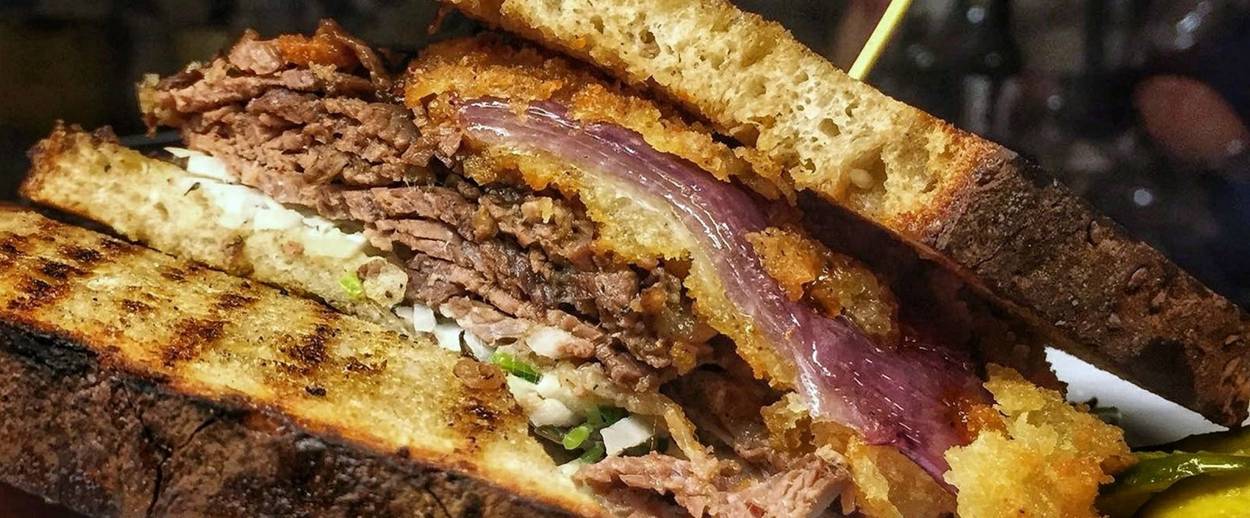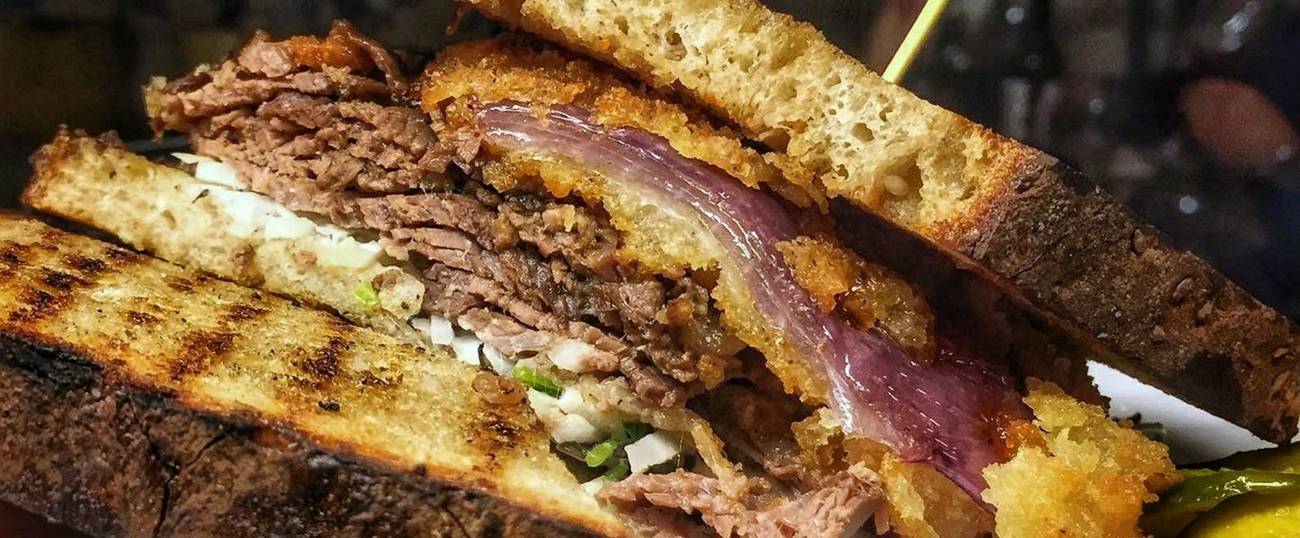Go Ahead, Bite Into That Bacon Cheeseburger. It’s Kosher.
A Jerusalem eatery uses innovations like lamb bacon and vegan cheese to serve up kosher and delicious versions of sinful delights




While the embassy is still on its way, 2017 brought Jerusalem one clearly American emblem: the cheeseburger. Since opening its doors in January of this year, the aptly named Crave has been serving the local clientele a variety of dishes well-known to the American eater: In addition to the cheesy Craveburger, the menu includes burritos bursting with meats and vegetables, grilled sliders, Philly-style steak and cheese nachos, a tall Reuben sandwich and much more. The Nachos Grande appetizer in particular reads like the ultimate guilty pleasure: bacon, jalapenos, cheese, and sour cream, mingling in corn tortillas. How, one wonders, can you serve a juicy cheeseburger and still keep your restaurant kosher? At Crave, the new fast-casual restaurant by American chef Todd Aarons, the union is made possible thanks to a a couple of twists no one saw coming: vegan cheese and lamb bacon.
Aarons, who opened the restaurant with two business partners from the tech and dining worlds, lists a number of fine dining and casual American restaurants in his resume, some of them with a kosher angle. He grew up in California, worked as an apprentice at San Francisco’s famous Zuni Cafe, opened a kosher restaurant, Mosaica, in New Jersey, and, before moving to Israel, established and led Tierra Sur, the lauded kosher restaurant at Herzog Wine Cellars, a Jewish-owned winery in Oxnard, California. Being kosher in Jerusalem, however, is a different story. In Israel, and the Israeli capital in particular, restaurant kashrut is a dividing topic under the umbrella of governmental supervision; restaurants which operate with a certified kashrut stamp receive it from the Israeli Chief Rabbinate through a lengthy process. Restaurants that opt out risk never seeing kashrut-keepers inside their walls, and while in cosmopolitan Tel Aviv the non-kosher is norm, in religiously-skewed Jerusalem, restaurants serving seafood, pork, and meat and dairy combinations are a minority.
While some Israeli chefs, like the molecular-cuisine pioneer Meir Adoni, have recently declared kosher dining as the future of Israel and moved away from “forbidden” products altogether, Aarons decided to marry the prohibited with the decadent.
“We use our kashrut as a jumping board rather than a limitation,” Crave’s sous chef Yotam Cohen told the website Mako soon after the opening. “We’re not afraid to compare our food to non-kosher versions.” The vegan cheese, in the form of cheddar and mozzarella, and the vegan cream, all of which make several appearances throughout the menu, are made in-house from coconut oil. The lamb bacon is also prepared by the restaurant, and added to dishes like the rich “butcher” steak sandwich and the quesadilla. “This is a first, and it works,” gushed the hard-to-please Haaretz restaurant critic, Sagi Cohen, upon visiting.
He’s not wrong. Among completely kosher eateries, the odd kosher fine dining restaurant and the anything-goes epicurean establishments synonymous with the Tel Avivian food scene, Crave is carving a niche of its own, riding a number of trend waves at once. In addition to pioneering the gourmet-casual scene in the country, mixing sous-vide and meticulous prep with street food sensibilities, it successfully implements the American diner wave, which already brought Israel places like America, a large format Mexican taqueria-meets-hamburger joint in central Tel Aviv; the vegan wave, utilizing clever cheesemaking techniques; and the unstoppable kosher wave, which has been on the radars of many leading Israeli chefs in recent years, as the Orthodox representation in the Israeli government remains strong.
And there’s something else about Crave which is deeply trendy-American: There are no reservations. Only a restaurant that confidently knows people will be lining up for its fare can pull this one off.
Flora Tsapovsky is a San Francisco-based food and culture writer.